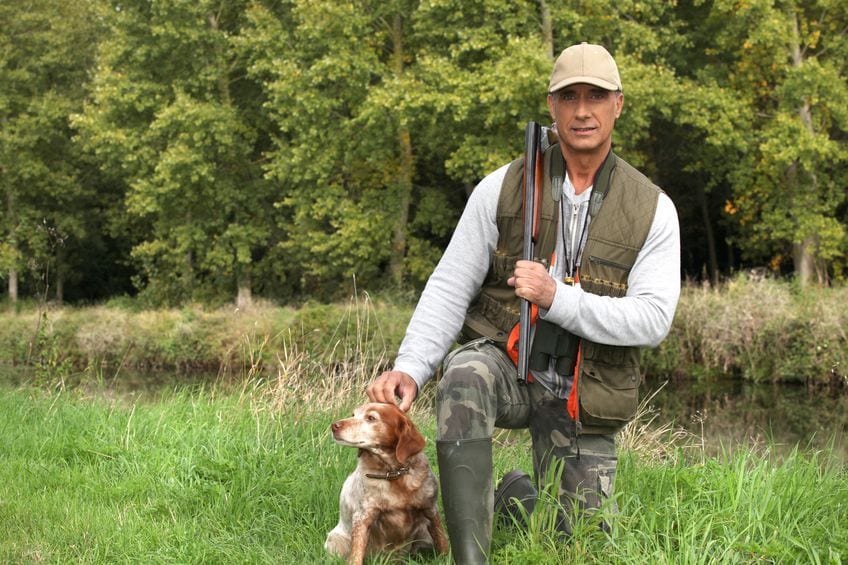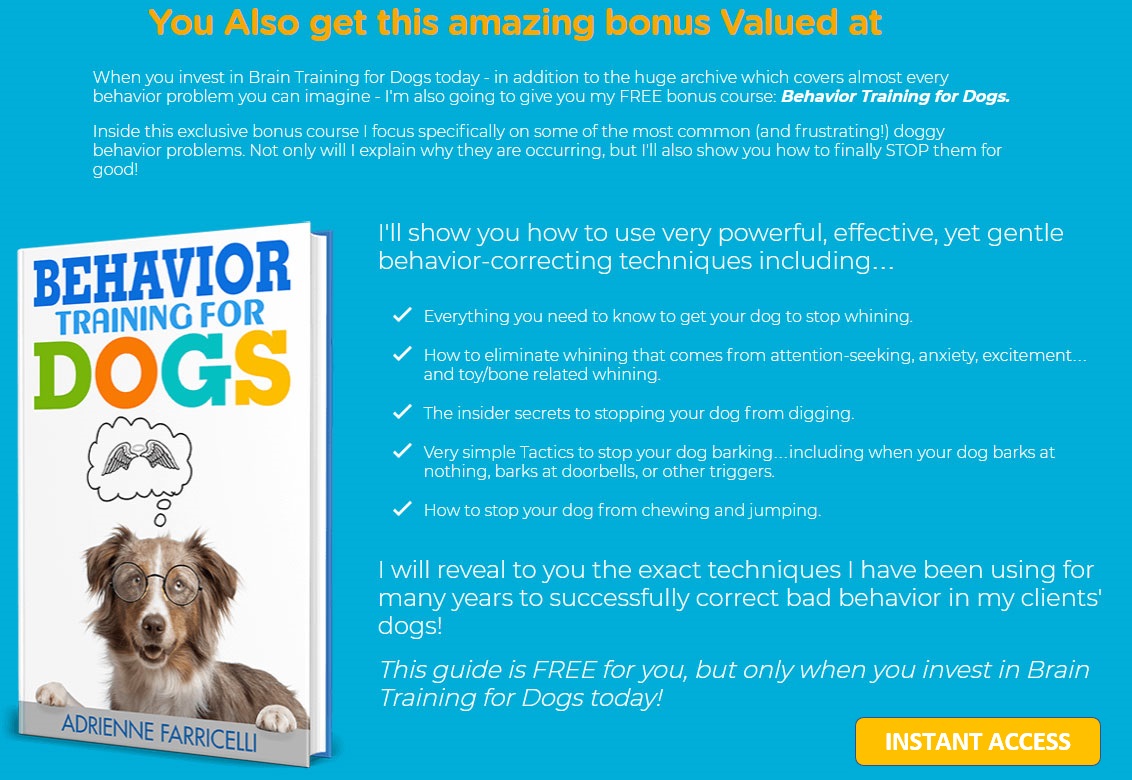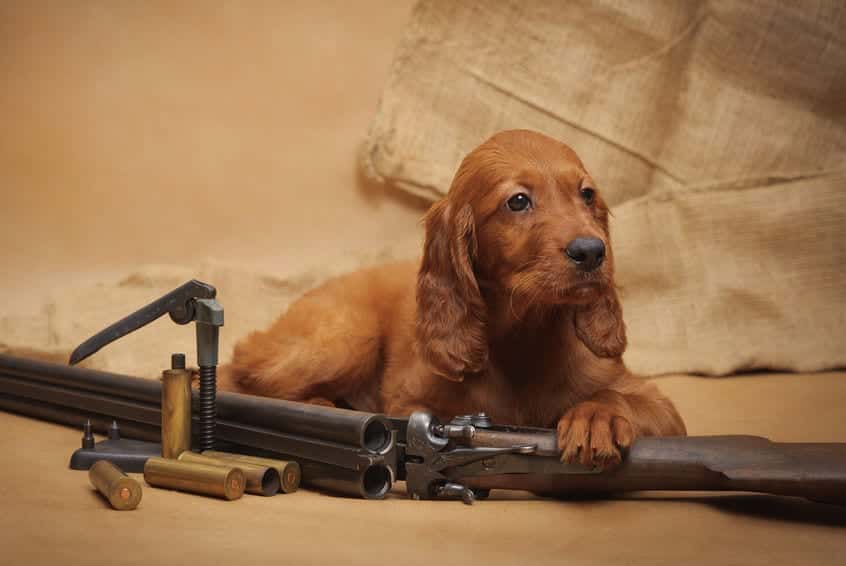Hunting dog puppy
Training a puppy for hunting is a real job that requires a lot of patience and techniques. You look at your puppy, motivated and full of hope I'm sure. You want your puppy to become the one who will accompany you every weekend on the hunt and do his job properly.
Don't worry, you will succeed and so will he. Today I'm giving you all the advice you need to make your puppy the best hunting dog possible.
Tips
I will start by giving you some tips. They are important and you must take them into account (I'm watching you) if you want everything to go well and, above all, they are essential for the success of your dog's hunting training.
First of all, you should know that you don't just decide to train your dog for hunting and that you don't just let your puppy loose in the wild without any preparation. He will not understand anything and above all, it is a very bad technique.
By doing so, he will learn to be afraid of shooting, of game and of hunting in general. It is very common to see promising puppies with potential ruined by a bad start.
Don't start hunting training too early. He needs to know the basic commands first. I advise you to wait until your puppy is at least 1 year old. I know it's a long time when you like hunting and you are probably impatient, but you will have to wait if your puppy is 3 months old for example. Going too fast is a mistake that is often made.

Which puppies for which hunt?
This is one of the questions you probably ask yourself if you have not yet adopted your dog. I propose you this small guide to see more clearly:
Pointing dogs
The role of a pointing dog is to advance on the field in front of the hunter in order to detect the game and then block it by marking the stop.
There are two types: Continental pointing dogs: Spaniels (Breton, French, Münsterland), Braques (German, French Weimar, Auvergne and Bourdonnais) and Drahthaars. British pointing dogs : The English and Irish Setter, the Pointer.
Hounds
Its role is to give voice to the passage of an animal by pursuing it by smell without seeing it. The Grand Bleu de Gascogne, the Saint-Hubert, the Beagle, the griffon fauve de Bretagne are all hounds.
The Game Lifters
The role of a game raiser is to hunt under the gun, track and raise the game. They are mostly chosen to work in brush, coppice, woods on woodcock, pheasant and rabbit. The Cocker Spaniel, the Springer Spaniel and the Irish Water Spaniel are game lickers.
Retriever dogs
Their role is to find dead or wounded game and of course to bring it back to the waterfowl hunter. Labradors and Golden Retrievers are perfect for this.
Burrowing dogs
As you can imagine, they hunt underground to block foxes or badgers in burrows. They have a morphology that allows them to access easily to this type of places. The Fox Terrier, Dachshund, Jagd Terrier and Jack Russell Terrier will do this very well.

How to train your puppy to hunt?
Here we are at the heart of the problem, it's about time, I know. Training your puppy for hunting must be done step by step. I advise you to encourage him to hunt by bringing him with you from a young age when you go hunting. Around 6 months, the serious things can begin with the breaking-in.
Breaking-in
You have certainly heard about it. No ? Then it's a good thing I'm here. Let me explain. It is in fact a pre-dressing which consists in making your puppy work without constraints. It is essential that the puppy shows that he is able to hold a stop on any released game. It is therefore a matter of putting him in action and controlling him. Remember, this is pre-training. The real training for hunting begins around one year old (recall, stop, flight wisdom, fire etc.).
Recall and stop
Recall is the first and most important command he must learn at this stage. Then comes the stage where you will put him in the presence of game. This will help develop his natural qualities and make him more enthusiastic. The pointing is of course reserved for pointing dogs. His olfactory sense must be trained and developed in order to obtain good stops.
The shot
The shot is the most delicate part to approach with a dog. You will have to do it with a maximum of precautions by using the puppy's passion in the presence of game. The choice of the moment, the place and the method is important for its good realization. The goal is for your puppy to make the association: fire cut = a bird to bring back or a game that falls.
You can test your puppy with a blank gun when he plays for example. I advise you to avoid starting at the water's edge, because the resonance is different there. Avoid landforms where the echo is too strong. It is best to start in a place he knows. For the rest of the training and to finalize it all, I would advise you to go see a professional. There are also many books that are real allies and a precious help to train your dog for hunting.
Training a dog for hunting takes at least two years. I prefer to be frank with you. You should also know that even with optimal training that enhances your dog's natural qualities, it cannot change the genetic dispositions acquired at birth. No hunter can say that his puppy will be a great hunter. But hop hop hop we remain confident, we cross our fingers (after having put down your rifle eh), we train our dog in the rules of art and everything will go well. Once again, I believe in you and your dog.
Conclusion
A true champion hunter is a lively, but thoughtful dog that is a good companion to his master on the hunt, but also at home. Such training is one of the most complicated, but once it is done, what happiness! Take your time, training is a long term process. Spend time with your dog every day.


